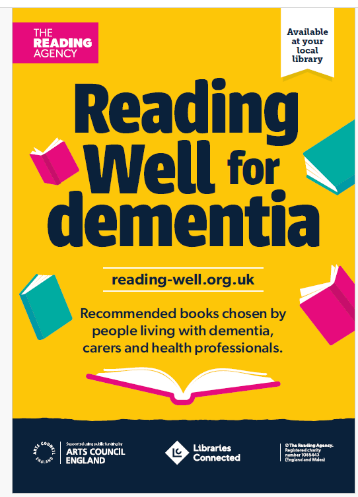
Dementia
Dementia friendly Ceredigion
Ceredigion Social Care and partner agencies are committed to developing a dementia friendly community. A dementia-friendly community is a place where people with dementia are understood, respected, and supported. In these communities, people know about dementia and understand it, so those with dementia can live the way they want and stay in their chosen community.
Dementia
Dementia is a condition in the brain that makes it hard for a person to remember, learn and communicate. The symptoms of Dementia including memory loss, confusion, mood changes and difficulty with day-to-day tasks. There are many causes of dementia, with Alzheimer's being the most common.
Dementia is not a normal part of getting older, go to Alzheimer's Society Is it getting older or dementia? page to understand more about the differences between getting older and dementia.
If you’re concerned that you, or someone you know, is showing signs of dementia, it’s important to see a GP. Becoming forgetful may not mean you have dementia. Memory loss can be caused by physical or mental health problems, and sometimes it's just a normal sign of ageing. But it's always better to know.
There are many different conditions that can mimic the early signs of dementia including: infections, delirium, vitamin deficiency, depression, anxiety and diabetes. These conditions are treatable, so it is important to visit a GP for tests to identify and manage these conditions. Once these conditions have been ruled out and there are still concerns about the ongoing changes then the GP may refer to the specialist local dementia diagnostic team for further tests.
An early diagnosis of dementia can help the person and their family to understand what form of dementia they have, why the changes they are experiencing are happening, and what they can do to manage them. It can mean access to medication that may help slow symptoms. It also enables the person and their family to have conversations about how to live as well as possible with the diagnosis and to plan for the future.
There is more information on dementia at Dementia UK's website or Alzheimer's Society website.
However, if you need support from us, you can request an assessment of your care and support needs by contacting CLIC on 01545 574200 or emailing connecting@ceredigion.gov.uk.
We are continuously looking to improve this page, please send feedback to clic@ceredigion.gov.uk.
Alcohol-related brain damage (ARBD) is a brain disorder. It is caused by a person regularly drinking too much alcohol, or binge-drinking, over several years. There are different types of ARBD. People who get ARBD are generally regular alcohol consumers over the NHS recommended 14 units per week and at higher risk of developing cognitive issues if over 50.
ARBD doesn’t always get worse over time, unlike common causes of dementia such as Alzheimer’s disease. If a person with ARBD stops drinking alcohol and receives good support, they may be able to make a partial or even full recovery. They may regain much of their memory and thinking skills, and their ability to do things independently. For more information visit Alzheimer’s Society website and Dyfed Drug & Alcohol Services DDAS website.
If you are concerned that someone you know might have dementia, you should go first to your local GP surgery or contact the National Dementia Helpline via telephone on 0800 888 6678 or email helpline@dementiauk.org. Further information can be found on Dementia UK's Admiral Nurse Dementia Helpline page.
If you have memory problems or other dementia associated symptoms you can seek support from a variety of organisations in Ceredigion without need for a formal assessment.
Reading Well for dementia recommends helpful reading and digital resources for people living with dementia. There are also books for family, friends and carers. The booklist provides reliable information, advice and support as well as personal stories and age-appropriate books for children.
The new booklist is targeted at people living with dementia, carers and family members including younger children to help them understand more about dementia.







